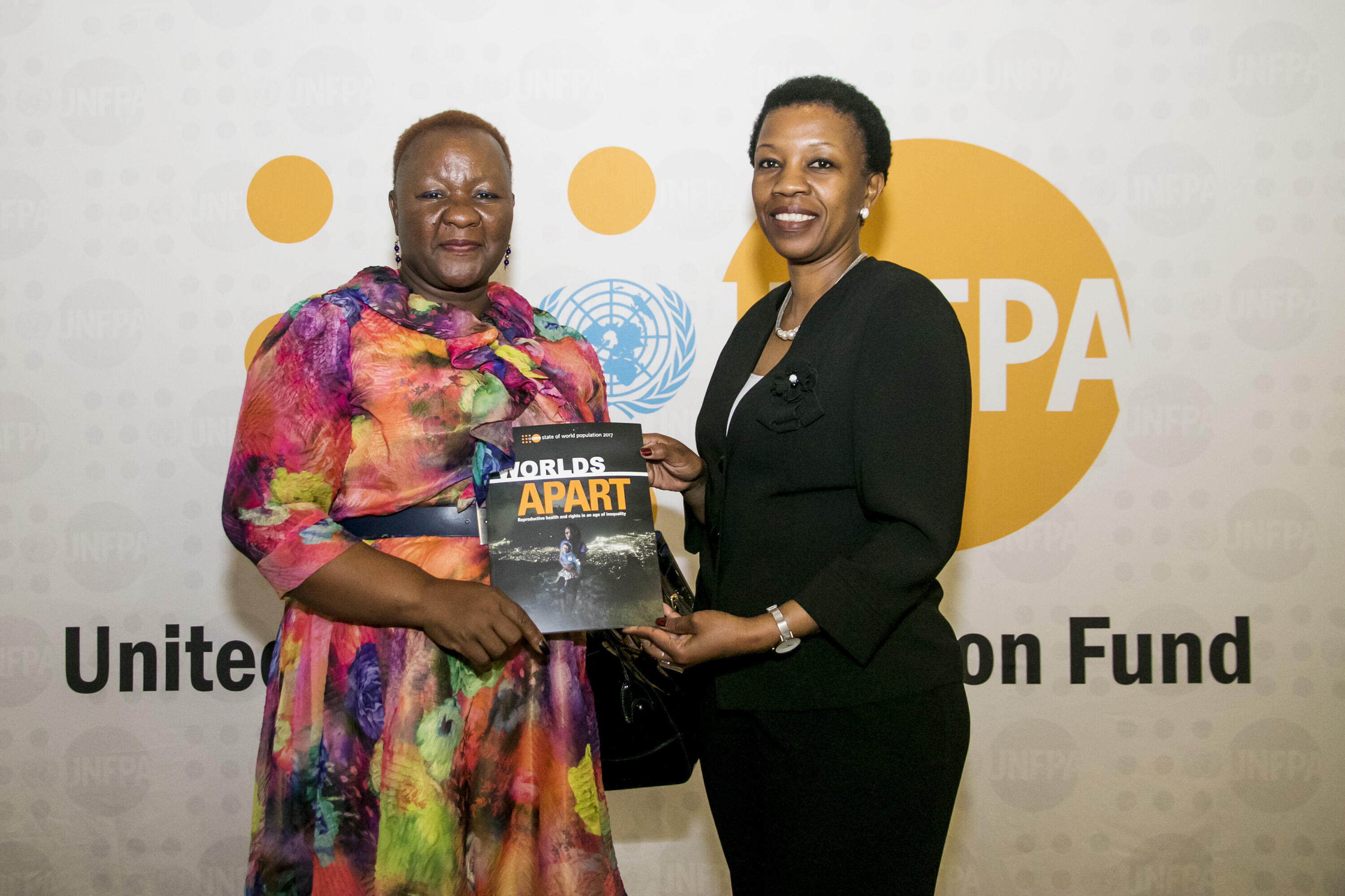The Minister of Health and Wellness, Honourable Dorcus Makgato officially launched the 2017 State of World Population (SWOP) report on 17 October 2017 in Gaborone, BOTSWANA. Commending the timely theme which is; Worlds apart: reproductive health and rights in an age of inequality, Makgato said; “the focus of the report is timely and challenges us to interrogate our work in fulfilling the sexual and reproductive health and rights to all without exception whether wealthy or poor, young or old.” About reproductive health, she stated that “Whatever contraceptive method one uses, with the HIV/AIDS statistics in Botswana, the use of a condom is must and should not be seen as optional.” The report highlights the need to narrow inequalities that hinder economic growth and the reduction of poverty and for all countries to adhere to all international human rights treaties and conventions that espouse sexual and reproductive health rights.
The UNFPA SWOP report calls attention to the inequality in the enjoyment or denial of reproductive rights and the spiral effect on those affected in developing countries.The 2017 report makes the case that in order to achieve the Sustainable Development Goals especially SDG 1, all countries need to reduce inequalities in women’s reproductive health and rights. Going beyond the traditional measure of inequality using income or wealth, the SWOP 2017 report demonstrates that economic inequality reinforces, and is reinforced by inequalities in sexual and reproductive health.
Minister Makgato lamented the paucity of strategic data in BOTSWANA to provide policy and programming for those left behind in accessing f sexual and reproductive health services.
The burden of denied sexual reproductive rights was echoed by Ms Gaebonwe Mmakgakge Kealebale, a beneficiary from Otse, a village 235kms from the capital city Gaborone. Gaebonwe is a 40yr old young woman with Four (4) children and had previously had little knowledge about contraceptives, her rights and choices in family planning. Gaebonwe is a beneficiary from one of the nine (9) SRH/HIV linkages pilot programme sites. She shared that now that she is informed and using her method of choice the pill, she has not been pregnant and is now living a better live caring for her children.She spoke of the many young mothers in her community who had unplanned pregnancies because of their lack of information on contraceptives. She stated that with increased information and access to contraceptives such as the injection, pregnancies in her community have greatly reduced and many more young women are now making informed decisions of when to have children, how many and with whom thus exercising their sexual health rights.
In her address, Ms Mareledi Segotso, UNFPA Assistant Representative emphasised that contraceptives, and the ability for women to choose when, how often and how many children to have, is often out of reach of those who are less educated and live in rural areas. “An unintended pregnancy can set in motion a lifetime of missed opportunities and unrealized potential, trapping a woman and her children in an endless cycle of poverty. The economic slide can continue for generations” She said. She further stated that; “a woman or adolescent girl who cannot enjoy her reproductive rights is one who cannot stay healthy, cannot complete her education, cannot find decent work outside the home and cannot chart her own economic future.” Ms Segotso therefore implored partners to tackle all forms of sexual reproductive health and rights inequalities and lay the foundation for a more equitable future where “all women govern their owns lives with equal access to sexual and reproductive health care and are free from unintended pregnancies.”
Speaking from the audience, Kgosi Mosadi Seboko, who is the chief of the Bamalete tribe, the first female chief in the history of Botswana, a and the Chairperson of the Gender Commission said; “It is important for parents to recognize their role in educating their children on sexuality matters, and for development practitioners to acknowledge that many parents don’t have the parenting skills they need to perform their duties” In her final remarks, Honourable Minister Makgato encouraged the use of the report as a resource to improve the provision of sexual and reproductive health services and contribute to the fulfilment of sexual and reproductive rights of all. Highlighting that she is “committed to ensuring that sexual and reproductive health rights of all women, everywhere in Botswana are respected, protected and fulfilled.”


